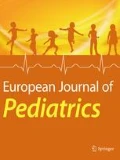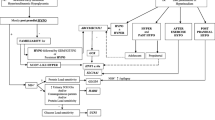Abstract.
Congenital hyperinsulinism is one of the most common causes of recurrent hypoglycaemia in early infancy. It is characterised by dysregulation of insulin secretion. Over the last few years, substantial progress has been made in understanding the molecular mechanisms of normal and pathological insulin secretion. Mutations in different genes (those for the sulphonylurea receptor, inward-rectifying potassium channel, glutamate dehydrogenase and glucokinase) are associated with different modes of inheritance. The clinical heterogeneity of the various forms is explained by different pathogenic mechanisms resulting in inappropriate, partly unregulated secretion of insulin. Early recognition of hypoglycaemia, correct differentiation between histological types (focal or diffuse), and maintenance of adequate glucose levels are of critical importance for the outcome of these patients. Conclusion: the recent advances in the knowledge of the basis of congenital hyperinsulinism have resulted in new diagnostic and treatment strategies. Application of these aspects to general clinical practice will lead to an improvement of the management and long-term outcome of affected patients.
Similar content being viewed by others
Author information
Authors and Affiliations
Additional information
Electronic Publication
Rights and permissions
About this article
Cite this article
Meissner, T., Mayatepek, E. Clinical and genetic heterogeneity in congenital hyperinsulinism. Eur J Pediatr 161, 6–20 (2002). https://doi.org/10.1007/s004310100850
Received:
Revised:
Accepted:
Published:
Issue Date:
DOI: https://doi.org/10.1007/s004310100850




